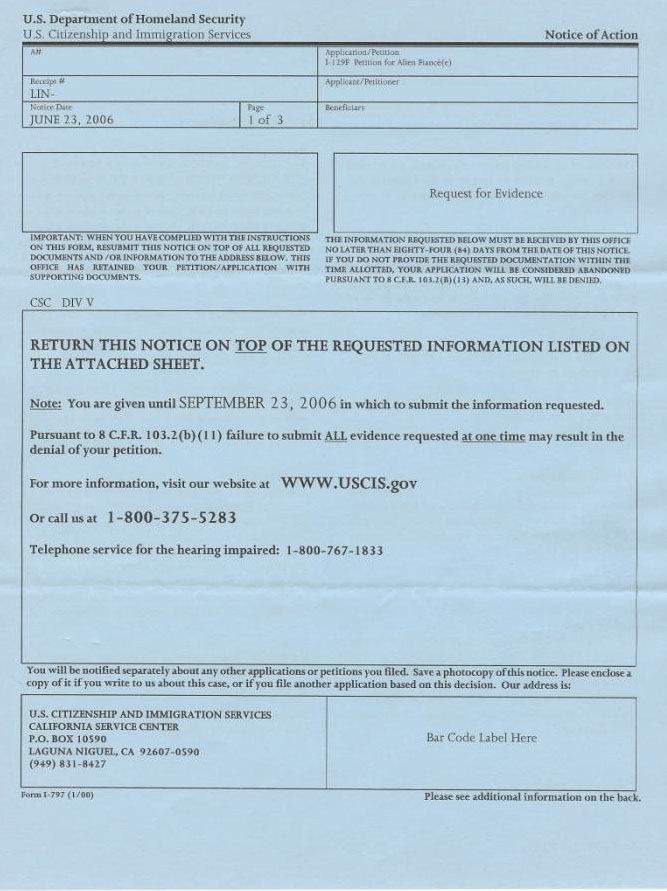What is an RFE?
USCIS issues a request for evidence is when your case is lacking required documentation in the initial filing or the adjudicator needs more additional evidence to determine your eligibility for the benefit sought. A request for evidence may be sent at any stage of the review. The RFE will indicate what evidence or information is needed for USCIS to fully evaluate your case. The notice will give the deadline for a response so it is important to confirm cooperation with your attorney in preparing the response.
Reset the clock?
When an RFE is issued, it resets the proverbial 30-90 day clock for cases in which employment authorization or advanced parole is submitted concurrently. USCIS will hold your case suspended while you respond to the request, so it is essential to work quickly with your attorney to obtain the necessary documents. For instance, when an adjustment of status to permanent resident application is filed, an applicant is permitted to apply for employment authorization and/or advanced parole and USCIS must adjudicate the petition within 30-90 days. If they have not mailed out the employment authorization or advanced parole within that time period, you may obtain a temporary EAD (employment authorization document) pending approval of your application. However, when an RFE is issued, the 30-90 days is reset and does not begin to count down until the response to the RFE has been submitted.
Simple vs. Complex
An RFE is not a denial. In most cases, a document or piece of evidence may have been missing from the filing. Most times, in less complex cases, like K-1 fiancé(e) visas, adjustment of status to permanent residence, or other family-based cases, RFEs are very simple to answer and it is paramount that you provide all the documents/evidence that your attorney requests. In such cases, the requests for evidence tend to be straightforward. However, in more complex cases, like L-1A/1B (intracompany transferees), H-1B (professional worker), and E1/E2s (treaty trader/investor), issuance of an RFE may deal with far more complicated issues related to finance, ownership, work experience, or investment.
Trends in RFE issuance in complex cases
Where there are trends in RFE issuance that rely more on change in interpretation of regulation, it is difficult and sometimes very frustrating to pre-determine whether the evidence that is provided is sufficient. Especially in nonimmigrant employment-based cases, your attorney should advise you on ongoing trends in adjudication for a particular visa path that will provide you more insight on what options may be best for your company. It is important that your attorney informs you of current trends and opine on his/her experience.
Recommendation
To that end, it is imperative to not ignore the importance of what USCIS is requesting in the RFE. Your attorney will help you navigate what is being requested and provide you a detailed list that should be collected for submission in response to the government’s request.


Case evaluations are important in the immigration process. Dispel the “he said/she said” of friends & family and go straight to the source to learn your TRUE legal options!














